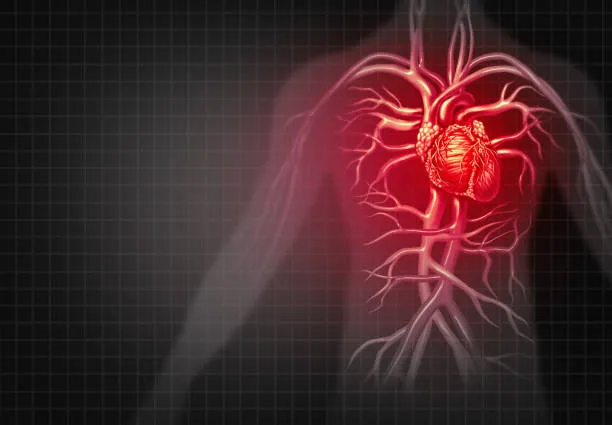Heart disease is a major health issue that affects millions of people across the globe. According to the World Health Organization, it is the leading cause of death worldwide, claiming over 17 million lives every year. While there is no way to completely eliminate your risk of heart disease, there are steps you can take to lower it significantly. In this comprehensive guide, you will learn how to reduce your risk of heart disease by making simple lifestyle changes. We will look at how to eat a heart-healthy diet, get regular physical activity, manage stress, and make other lifestyle changes. By following the steps outlined in this guide, you can drastically reduce your risk of developing heart disease and improve your overall health.

Eating a Heart-Healthy Diet
Your diet is one of the most important factors in reducing your risk of heart disease. First, make sure you are eating a balanced diet rich in fruits and vegetables. This is important for many reasons, but is especially critical for reducing your risk of heart disease. Eating a diet rich in fruits and vegetables is linked to lower blood pressure, blood sugar, and cholesterol levels. This means that a diet rich in fruits and vegetables can help you reduce your blood pressure, cholesterol, and blood sugar levels. This, in turn, can lower your risk of developing heart disease. To lower your risk of developing heart disease, make sure you are eating a diet rich in whole grains, legumes, and fish. Whole grains and legumes are rich in fiber, which has been shown to reduce blood cholesterol levels. Additionally, fish such as salmon, mackerel, herring, sardines, and trout are great sources of omega-3 fatty acids, which have been shown to reduce inflammation and lower blood pressure.

Adding Exercise to Your Routine
While it is important to eat a heart-healthy diet, it is also important to get regular physical activity. Physical activity can help you lose weight, lower your risk of diabetes, and improve your cardiovascular health. Furthermore, regular physical activity can help you manage stress levels and strengthen your bones and muscles and is linked to lower blood pressure and cholesterol levels. Indeed, the more regularly you exercise, the lower your risk of developing heart disease. To reap these benefits, aim to get regular physical activity for at least 30 minutes per day. If you are not used to getting regular physical activity, start out slowly and gradually increase the intensity and duration of your workouts as your body gets used to regular exercise. Make sure to choose a type of exercise that you enjoy and that works for your schedule and lifestyle.
Managing Stress Levels
Research has shown that stress is linked to an increased risk of heart disease. This is because when you are under stress, your body releases cortisol and other hormones. These hormones can increase your blood pressure and blood sugar, which can lead to increased risk of heart disease. Because stress is unavoidable for many people, you can take steps to reduce and manage it to lower your risk of developing heart disease. To manage your stress levels, try to get enough sleep, engage in relaxing activities, and avoid excessive caffeine and alcohol. Engaging in activities linked to lower stress and is proven to improve your overall health. As an added benefit, these activities can also lower your risk of developing heart disease.
Quitting Smoking
Smoking is one of the most preventable risk factors for heart disease, yet many people continue to smoke. Cigarette smoking is linked to increased risk of heart disease. As a rule of thumb, smoking is bad for you in any way, but it increases your risk of heart disease. To lower your risk of developing heart disease, you should quit smoking. Better yet, you should avoid smoking in the first place. If you are planning to quit smoking, you can try nicotine replacement therapy or exercise.
Limiting Alcohol Consumption
While there is no level of alcohol consumption that is completely safe, high alcohol consumption is linked to an increased risk of heart disease. Alcohol has been shown to increase blood pressure and blood sugar levels, which can lead to an increased risk of heart disease. To lower your risk of developing heart disease, you should limit your alcohol consumption. As a rule of thumb, if you are engaging in regular physical activity, you should not drink more than two standard drinks per day. For people who do not engage in regular physical activity, the recommended maximum amount of alcohol per day is less than one standard drink.
Managing Your Blood Pressure and Cholesterol
Blood pressure and cholesterol levels are two important indicators of heart disease risk. High blood pressure and cholesterol levels have been linked to an increased risk of heart disease. While you cannot change the genetics that determine your blood pressure and cholesterol levels, you can lower them through regular exercise and a heart-healthy diet.
Monitoring Your Health
Finally, you should monitor your overall health. This means keeping track of your blood pressure, cholesterol levels, and other health indicators such as your weight and blood sugar levels. Regularly monitoring your health indicators can help you catch any health problems early, which can make it easier to treat them. This is especially important for people at risk of developing heart disease. Such people should monitor their blood pressure and cholesterol levels regularly to ensure they do not develop heart disease.
Conclusion
Heart disease is a serious health issue, and it is important to be proactive. By following the steps outlined in this guide, you can reduce your risk of developing heart disease and improve your health. Make sure to eat a diet rich in fruits and vegetables, add exercise to your routine, manage your stress levels, and monitor your health regularly to reduce your risk of heart disease.
Reference:
https://www.cdc.gov/heartdisease/index.htm
https://medlineplus.gov/heartdiseases.html
https://www.mayoclinic.org/diseases-conditions/heart-disease/symptoms-causes/syc-20353118
https://www.webmd.com/heart-disease/heart-disease-types-causes-symptoms
https://www.google.com/amp/s/www.cnet.com/google-amp/news/9-tips-for-lowering-your-risk-of-heart-disease/
